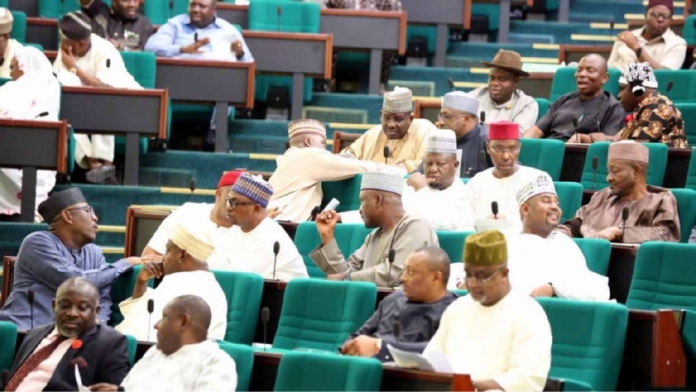The House of Representatives has raised concerns over Nigeria’s rising public debt profile, warning that it poses a significant risk to fiscal stability and future economic growth, according to BusinessDay. Citing recent data from the Debt Management Office (DMO) of Nigeria as of 31 March 2024, the House highlighted that Nigeria’s public debt—encompassing both external and domestic loans—has surged over the years, reaching ₦121.67 trillion. The House noted a steep rise in debt by ₦24.33 trillion over three months, from ₦97.34 trillion in December 2023 to ₦121.67 trillion, according to the same report.
The Lower Chamber expressed concerns that borrowed funds are not always effectively utilised for their intended purposes, which undermines the potential benefits of such loans to the public. Consequently, the House has mandated the Committee on Aids, Loans, and Debt Management to undertake a comprehensive audit and oversight of all loans acquired by both federal and state governments since the advent of the current democratic dispensation, with instructions to report back within four weeks for further legislative action.
This resolution followed a motion titled “Need to Ensure Public Debt Oversight on the Federal and State Governments Loans and Proper Utilisation of Borrowed Funds” sponsored by Lanre Okunlola, the representative for Surulere II Constituency.
According to Okunlola, “Debt is a cleverly managed re-conquest of Africa aimed at subjugating its growth and development and prolonging increasing debt services is not favourable for the overall wellbeing of the economy.”
He emphasised that Nigeria is among the 40% of developing countries that currently spend more on debt servicing and loan repayments, resulting in inefficiencies in government finances at the expense of critical sectors like education, healthcare, infrastructure, and social welfare.



